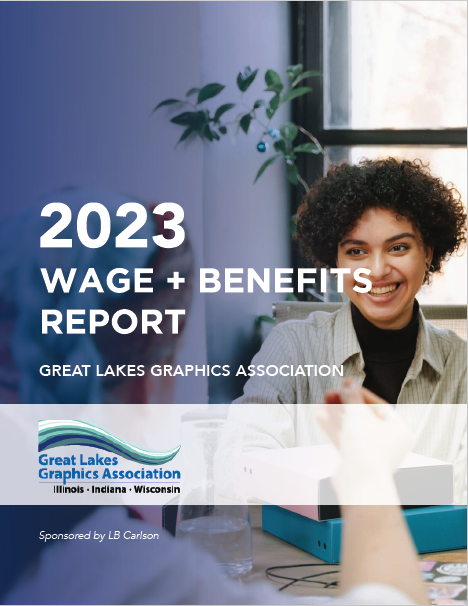Covenant Not to Compete

The Great Lakes Graphics Association’s most widely used and insanely popular service is its Member-Ask-a-Member listserv service. Completely anonymous, members are able to ask and answer questions to better understand complex issues, benchmark their business and implement best practices.
QUESTION:
To Sign or Not to Sign??
 We received a “Covenant not to Compete” from our new client. It states, “Contractor (that’s us) agrees that during the term of his engagement with Client X and for a period of xx months thereafter, He shall not directly or indirectly render services to any customer of Client X which are the same as or substantially similar to those Services performed by Contractor for any customer pursuant to a project offer under the Contractor Agreement.”
We received a “Covenant not to Compete” from our new client. It states, “Contractor (that’s us) agrees that during the term of his engagement with Client X and for a period of xx months thereafter, He shall not directly or indirectly render services to any customer of Client X which are the same as or substantially similar to those Services performed by Contractor for any customer pursuant to a project offer under the Contractor Agreement.”
I’m having a hard time swallowing this. I’m in business to make money. If Client X’s customer comes to me to do a job, I’m supposed to turn it way for xx months.
How can I re-word this contract or do I just not sign?? Wondering what others out there are doing. I hear there are more and more of these being presented.
ANSWERS:
I would not sign it.
How do you know who the clients are unless they a specially detailed in the contract?
How do you define “same” or “substantially similar”? product type, fulfillment?
What happens if you expand your current products beyond what you currently offer?
This sounds like a “broker” asking for this contract.
Seems like a very broad “Covenant not to Compete.” What is definition for “same or substantially similar” services performed. Did the Client identify their customers whom not to compete with or offer services?
Your Client is not the End User – but a Broker of your services they offer to others?
I would reword it to restrict it to not working with Client X’s customers where work is referred/sent to Contractor. Client X sounds like an agency. We will not do work directly for a customer where we got the initial work through the agency (we’ll check with the agency first to get permission). We may call on any other client that the agency may have if we haven’t done any work for that client through the agency.
Hope that helps.
We would explain our position to the client. Reword or do not sign. They have no right to limit your sales.
I signed one of these for an agency a few years back thinking it was a great opportunity. Turns out they did very little in the year we worked together and then they wanted us to sign another one. I refused the second time around and would be slow to sign another one going forward without a contract that had some guarantees for our company. It was a very one sided agreement.
I would say if they want exclusivity then they need to pay for it (increase prices). Brokers love to try to impose those kind of restrictions to protect their revenues.
It should also be very clear that it only includes customers that you have actually produced product for (not potential customers).
Really just depends on how much this agreement will bring to your balance sheet (vs how much it may take away). One could always have a volume clause which states that this agreement only takes affect after so much volume between the parties has been achieved.
Too broad
Will he do the same?
Geographical areas?
Get a list of non compete companies and agree to those specific accounts
There must have been a problem In their previous relationships.
Won’t sign it but propose what you would limit it to.
We are regularly presented with this type of document and if this customer is new to us we will gladly sign the agreement. Personally I would never backdoor someone that brought me a new customer with or without an agreement. If we have an ongoing relationship with the company we will not sign the agreement.
We have not experienced a “Covenant to Compete” from any of our clients. If there is something proprietary about the project that gives your client a competitive advantage then a typical solution would be a Non-Disclosure Agreement. Rather than trying to rewrite the agreement yourself, I would ask your attorney to assist you.
The company is simply trying to make sure you don’t do an end-around and tell their customer you can do it directly for his customer….
…so simply limit it to the job in question. So you promise not to re-run the next version or next issue, or next print run of this job unless it comes from the company requesting the covenant. Moreover, since you may already be doing work for the same customer, you explain you’re in violation before the ink is dry.
Editor’s note: GLGA member Andrea Schlack, president of Printing Industry Credit Bureau, has expertise in this area. Andrea called to discuss the question and offered this succinct advice: “If you sign it, you own it!”
Members are welcome to contact her.
Phone: 847-265-0400
Email: info@picb-us.com
http://picb-us.com/
(1) Change one word “render” to “solicit.” Problem solved. FYI – printers cannot “compete” with ad agencies, nor can ad agencies compete with printers unless they both provide the same services. That’s why these kinds of agreements are rare in the printing industry. On the other hand, subcontracting foil printing or finishing to another printer is certainly grounds for a noncompete, but I would recommend a mutual non-compete.
(2) Having changed the word from “render” to “solicit,” if the customer approaches the printer on his own, then they could do the work. Non-competes that are without time and geographical limits are considered “overly broad” and therefore unenforceable.
The clause raises numerous legal issues that are similar in many ways to the issues that are attendant to an employment non-compete, but it also raises legal questions under both state and federal antitrust laws that should be reviewed by counsel before anybody agrees to the proposed language.
Thomas Heneghan
Partner
Husch Blackwell
(608) 234-6032
tom.heneghan@huschblackwell
GLGA currently has more than 300 best practice questions answered in its archive. Interested in reviewing more best practice questions? Contact Sharon Flick at (855) 522-2210.

